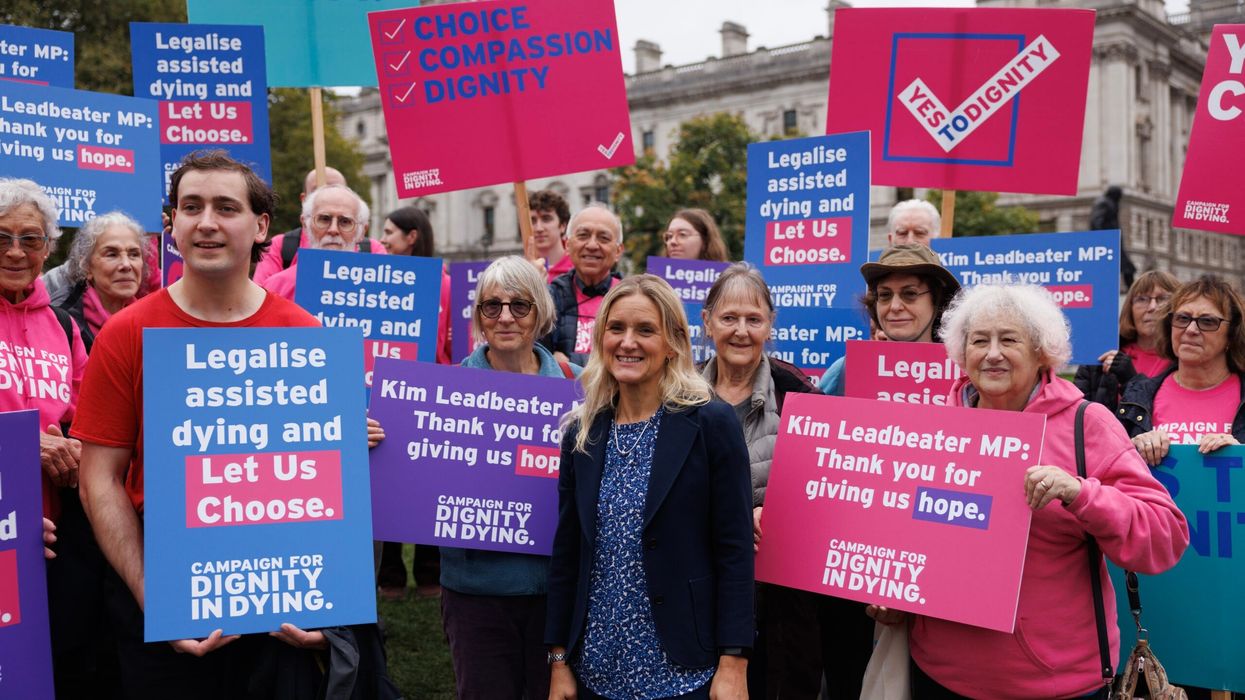A NEW proposal to legalise assisted dying in England and Wales was introduced in parliament on Wednesday. The bill, sponsored by Labour MP Kim Leadbeater, has raised concerns from senior church leaders and opponents regarding its broader implications.
MPs will be given a free vote on the Terminally Ill Adults (End of Life) Bill, allowing them to vote according to their conscience rather than party lines. While the details of the bill have not yet been published, an official familiar with the matter told AFP that it would require approval from a judge and two doctors for a patient's wish to die. The bill would apply only to those with six to twelve months left to live.
Supporters and opponents of the bill gathered outside parliament. The last time such a bill was debated was in 2015, when it was defeated.
Anil Douglas, 39, spoke in favour of the bill, saying it could have offered his father "safety" and "dignity". His father, who took his own life, had to do so alone and in secret. "He was forced to take very drastic action behind closed doors and couldn't discuss his decision with any of us that loved him," he said.
Not about disabled people
Assisted suicide is currently illegal in England, Wales, and Northern Ireland, with a maximum sentence of 14 years. In Scotland, it is not a specific criminal offence, but individuals could still face other charges, including murder.
Leadbeater said public opinion has shifted in favour of assisted dying, which is already legal in several European countries. She emphasised the importance of "very robust, very secure safeguards" and said the bill is about giving terminally ill people choice at the end of their life. "This is not about disabled people. It's not about old people. It's about people who are terminally ill and the rights that I believe they should have," she told AFP.
Opposition
Opponents of the bill include disability rights groups and senior religious figures, including Cardinal Vincent Nichols, the UK's top Roman Catholic cleric, who has urged followers to oppose the legislation.
Archbishop of Canterbury Justin Welby, the leader of the Anglican Communion, called the bill a "dangerous... slippery slope" that could extend beyond terminally ill individuals. He, along with other senior clerics in the House of Lords, will have a vote on the matter.
Alistair Thompson, from the anti-euthanasia group Care Not Killing, warned that changing the law could put people under pressure to end their lives prematurely. He compared the potential changes in the UK to developments in Belgium and the Netherlands, where assisted dying has been extended to minors.
MPs will debate and vote on the bill on 29 November. As it is a private member's bill, the outcome remains uncertain. Polls indicate public support for assisted dying, and Keir Starmer has previously voiced his support for a change in the law.
Similar legislation has been introduced in the Scottish Parliament, and British Crown Dependencies like the Isle of Man and Jersey are also moving towards legalising assisted dying for terminally ill people.
(With inputs from AFP)




